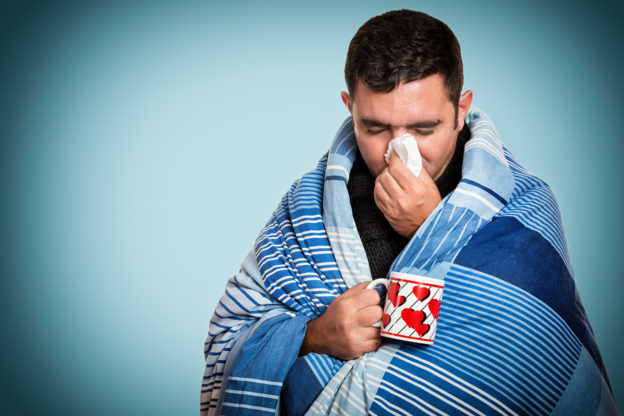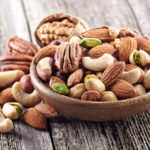By David Blyweiss, M.D., Advanced Natural Wellness
November 11, 2016
- Will a flu shot stop you from getting the flu?
- Here’s why you don’t need the influenza vaccine
- Boost immunity to slash flu risk
“Doc, shouldn’t I get a flu shot?”
This always seems to be the number one question on my patients’ minds around this time of year. And they’re always surprised by my answer.
As a vaccine, the flu shot is woefully inadequate.
For example, the 2013 vaccine was a mere 9% effective against influenza A (H3N2 virus) in adults 65 and older. And the 2015 vaccine was only 12 to 14% effective against the virus in all adults – no matter what their age.
If you’re a statin drug user, the effectiveness of flu shots drops even further. These drugs drastically reduce your immune response to the vaccine and completely erase any benefits you might get from it.
This is especially true if you are taking a synthetic statin. These include atorvastatin (Lipitor), rosuvastatin (Crestor), fluvastatin (Lescol) and cerivastatin (Baycol).
MD Exposes the Hidden Danger to Your Eyes

When your eyesight starts to fail, it's a real problem. Suddenly you can't go to the grocery store... you can't get to the doctor if you have an emergency... you can't meet your friends for dinner…
Your "regular" doctor doesn't have time to keep up with the latest research. And the same goes for eye doctors. They go to school to learn how to fit you for glasses and contacts, but have no way of preventing the damage and loss of eyesight that threatens your freedom and independence.
Let me show you something that explains a LOT about how your eyes work.
In my FREE Special Report, I'll show you a HUGE, untapped resource for your eyes that safely and naturally restores clear, effortless eyesight.
Click here to get started...
Keep in mind, too, that these vaccines suppress your immune system. If it doesn’t return to normal for weeks or months on end, it means you may actually be more susceptible to the flu or another type of infection in the short run.
When you take all of this into consideration, getting a flu shot is pretty much a crap shoot. It’s a much better idea to take your seasonal health into your own hands.
Here’s why you don’t need a Flu Shot
You might be surprised to learn that most flu symptoms aren’t a result of the infection itself. Rather, they’re a result of your body trying to fight the infection.
In other words, the fever, sniffling, sneezing and aching is brought on by your own body’s immune response. White blood cells rush in to take up battle. Cytokines and other defense mechanisms are activated.
These are all triggers that tell your body to release mucus and develop a fever as part of the fight. They also add to the aches and pains you feel.
This type of aggressive inflammatory activity can magnify your symptoms and make you feel even more miserable.
Now, remember. When you get a flu shot, it actually depresses your immune response. This may be why people who get the vaccine every year experience lower and lower rates of protection against the flu.
However, if you have a strong immune system, there’s a good chance you can be exposed to the flu repeatedly… and never experience a single symptom.
Are You Suffering From...
- Love handles and a pot belly
- Romance that isn't what it used to
- Forgetfulness and inattention
- Low (or no) strength and endurance
- A sex drive that's shifted into neutral...or worse
If so...you may have Mature Male Burnout. Click here to discover more about this unique condition and what you can do about it.
That’s why the best thing you can do for yourself during flu season is to do everything you can to boost your immune response.
Boost Immunity to Slash Your Risk of Flu
Manage Your Stress. Stress is one of the biggest immune busters you’ll ever face, and you face it every day. It causes inflammation and also tells your body to release inflammatory cytokines.
If you’re unable to manage stress on your own, look into treatments like acupuncture or massage therapy. Hatha yoga is another great way to help you de-stress and gain mental clarity.
Eat for a Healthy Immune System: If you’re still eating processed or sugary foods, you aren’t doing your immune system any favors. Make fresh, organic fruits and vegetables your mainstay. Add nuts, beans, wild-caught fish, healthy fats and small amounts of clean meat for a well-rounded diet that supports your immune system.
It’s also a good idea to take a daily probiotic to increase the amount of good bacteria in your gut. This is where the majority of your immune system lies, and if bad bacteria take over, they can destroy your health.
Master a Good Night’s Sleep. A loss of sleep suppresses immune function and increases your levels of inflammatory cytokines. This is bad news if you want to avoid the flu. I always recommend shutting all of your electronic devices down about an hour before bedtime. Spend that time reading or listening to music, then tuck yourself in.
If you have a hard time staying asleep try 2-3 mg. of time-released melatonin before bedtime. It works like regular melatonin to put you to sleep quickly. However, it lasts longer, keeping you from waking up during the night. Use it only as long as it takes to re-establish your natural sleeping pattern.
Get Plenty of Vitamin D. Another strong recommendation for flu prevention is to be sure you are getting enough vitamin D. People who don’t get enough vitamin D are more likely to get respiratory infections like colds and flus.
Also, don’t forget to wash your hands regularly… and never ask your doctor for an antibiotic to “cure” your virus. Antibiotics only work on bacterial infections, not viruses. And taking one could lower your immune response even further.
SOURCES:
Morbidity and Mortality Weekly Report (MMWR). Centers for Disease Control and Prevention. Feb 2013.
Morbidity and Mortality Weekly Report (MMWR). Centers for Disease Control and Prevention. Jan 2015.
McLean HQ, et al. Effect of Statin Use on Influenza Vaccine Effectiveness. J Infect Dis. 2016 Oct 15;214(8):1150-8.
Cohen S, et al. Chronic stress, glucocorticoid receptor resistance, inflammation, and disease risk. Proc Natl Acad Sci U S A. 2012 Apr 17; 109(16): 5995–5999.
Kiecolt-Glaser JK, et al. Stress, inflammation, and yoga practice. Psychosom Med. 2010 Feb;72(2):113-21.
Mullington JM, et al. Sleep Loss and Inflammation. Best Pract Res Clin Endocrinol Metab. 2010 Oct; 24(5): 775–784.
Schwalfenberg GK. A review of the critical role of vitamin D in the functioning of the immune system and the clinical implications of vitamin D deficiency. Mol Nutr Food Res. 2011 Jan;55(1):96-108.







